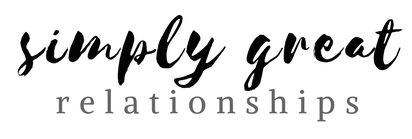During the holidays, there is a significant increase in invitations and expectations from friends and family. It becomes even more important than usual to check in with yourself and your partner on how you’re feeling, what you want, and what you need.
Without this check in, you’re likely to end up feeling overwhelmed, overbooked, and resentful. Your physical and emotional energy may become depleted and you’ll look back on this time of year with relief that it’s finally over. (Not the type of holiday experience we’d want to have).
This is where the boundaries come into play.
There are a few different factors to consider when deciding where and how to spend your time this holiday season. We’ve identified three types of boundaries:
Physical Boundaries | These are boundaries around where you will and won’t go and how you will or will not accept physical touch (for yourself and your children).
Emotional Boundaries | These are boundaries around the ways in which you will connect with others. For example, what topics you will and will not discuss, how long you’ll spend connecting with particular people, and the types of emotional experiences you’re open to having.
Energetic Boundaries | These are boundaries around your physical, emotional, and mental energy. They involve taking into account how tired you are, how emotionally drained or energized you feel when interacting with certain people, and how much mental bandwidth you have for supporting others.
In this week’s episode, we’re going deeper into each of these three types of boundaries, what they look like, how to evaluate which ones you need to enact, and how we apply these in our lives.
Read more





Are Kegels as close as you’ve gotten to being informed about pelvic floor health?
If so, this week’s episode is for you.
Some signs that you may be having pelvic floor issues include:
Incontinence
Lower back pain
Discomfort with sex
A weak core